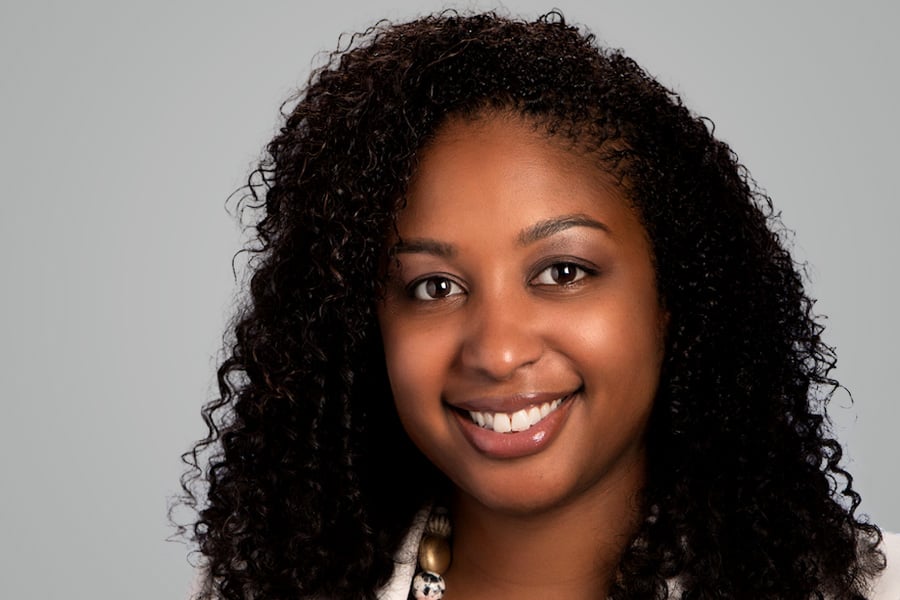

The Certified Financial Planner Board of Standards Inc. has been promoting diversity in the profession for years. It's now an example of what it's been advocating as Kamila Elliott becomes the first African American chair of the CFP Board.
“It’s fantastic for the profession,” Elliott said in an interview. “I think it’s inspiring for aspiring CFP professionals to see that there’s a Black woman — someone who looks like them, from Philadelphia, single-parent household, mom never had a financial adviser — if she can do it, I can do it. I think it’s a good testament of where this profession is going and how inclusive it is.”
The CFP Board sets and enforces the competency and ethical standards related to the CFP credential for more than 92,000 certificants in the United States. The board chair typically serves for a year. Elliott, a board member for three years, was elected by her board colleagues in 2021 as chair-elect. On Jan. 1, she began serving as chair.
“Kamila is a champion for a more diverse and sustainable financial planning profession,” CFP Board Chief Executive Kevin Keller said in a statement. “She also believes strongly in showcasing how competent and ethical financial planning by CFP® professionals benefits clients’ well-being. Her continued leadership and counsel will provide great value to CFP Board as we work toward a day when every American has access to financial planning.”
The number of Black and Hispanic CFPs grew to a total of 3,688 in 2020, a 12.6% increase over 2019, according to CFP Board statistics. But each group represented a fraction of the overall CFP population, with Blacks comprising 1.68% and Hispanics accounting for 2.46%.
During her year as chair, Elliott intends to promote diversity in the profession by increasing awareness of financial planning as a career path in which people can help others and do well for themselves. The focus on developing the talent pipeline will include outreach to historically Black colleges and universities.
The CFP Board’s Center for Financial Planning holds an annual diversity summit. The emphasis on diversity also is part of the board’s future of financial planning initiative.
One goal is for the demographics of the financial planning field to match the demographics of the advice market, which is becoming more diverse.
“I want to make sure that any person seeking financial advice can feel like, ‘I’m working with someone that understands me, that knows me,’ and they can achieve financial success together,” said Elliott, president and partner at Grid 202 Partners, a registered investment advisory firm based in Washington, D.C.
The business case for diversity is clear, she said. More diverse firms that encompass multiple points of view and backgrounds tend to perform better. Homogeneity can turn off potential clients and potential advisers.
“Young people don’t look for diversity [in advisory firms], they look for the absence of diversity,” Elliott said.
Elliott’s journey to the financial advice profession began when she was a student at Penn State University, where she earned both a bachelor’s degree and MBA. During holiday and summer breaks at home, she worked at PNC Bank and became interested in financial advice as she observed the daily activities of a PNC adviser.
“Everyone in my family knew I loved money,” she said.
Elliott, 44, spent 17 years at Vanguard, where she specialized in working with high-net-worth clients, major endowments and foundations as well as universities, hospitals and charitable organizations. She also has worked at Dimensional Fund Advisors and LPL Financial. She joined Grid 202 Partners in March 2020. Elliott earned her CFP credential in 2013.
She serves on the Investment Committee for Women Against Abuse Inc. in Philadelphia and is a member of the Association of African American Financial Advisors.

Executives from LPL Financial, Cresset Partners hired for key roles.

Geopolitical tension has been managed well by the markets.

December cut is still a possiblity.

Canada, China among nations to react to president-elect's comments.

For several years, Leech allegedly favored some clients in trade allocations, at the cost of others, amounting to $600 million, according to the Department of Justice.
Streamline your outreach with Aidentified's AI-driven solutions
This season’s market volatility: Positioning for rate relief, income growth and the AI rebound
